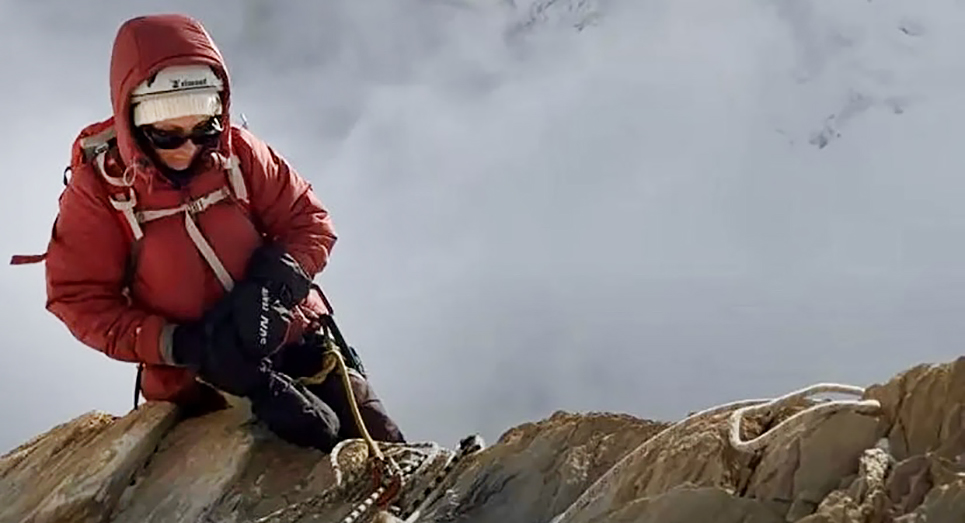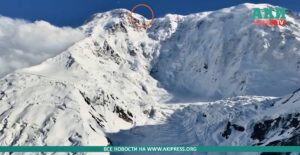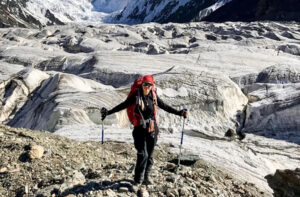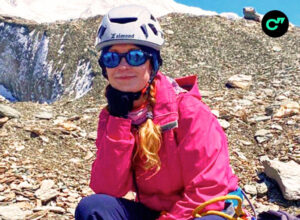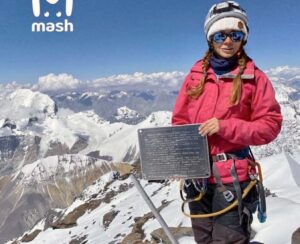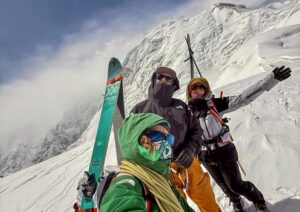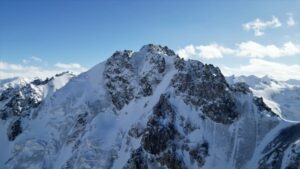Extreme conditions continue to delay the rescue of Russian climber Natalia Nagovitsyna, stranded at 7,150m on 7,439m Pobeda Peak in Kyrgyzstan’s Tien Shan mountains for over a week.
Due to harsh weather and poor visibility, helicopters cannot fly, so rescuers are hurrying on foot to reach her.
Today, a four-person team made it to Camp 2. They plan to move up to 5,800m tomorrow, August 21, when stable morning weather should offer a critical window. However, afternoon snow is expected, according to Anna Piunova of Mountain.ru.
As we reported yesterday, the 47-year-old Nagovitsyna broke her leg over a week ago, on August 12, while descending from the summit of Pobeda, also known as Jengish Chokusu. Stranded at high altitude with minimal food and water, and without radio communication, she remains in a torn tent, enduring extreme cold and struggling to survive in the thin air. A drone flyover on August 19 confirmed that she is still alive, prompting intensified rescue efforts.
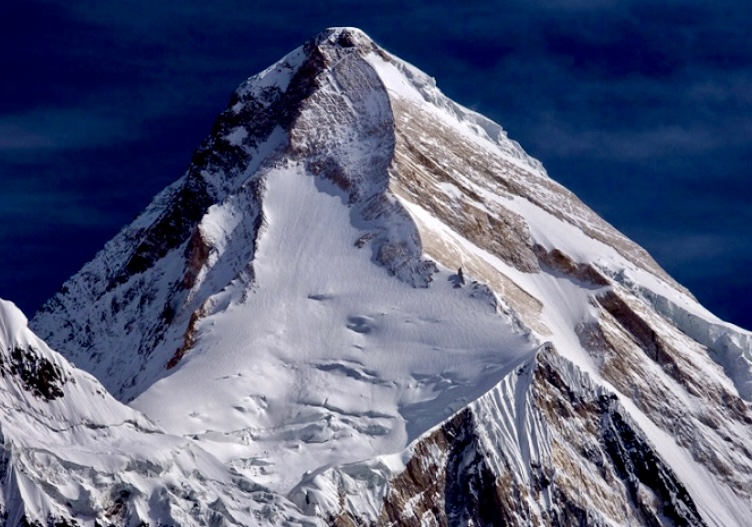
Khan Tengri. Photo: Doug Kofsky
Many other evacuations
Pobeda and neighboring peaks have wicked weather, long, difficult routes, and objective hazards like avalanches and many crevasses. On August 19 alone, the Kyrgyz Ministry of Defense evacuated 62 climbers, tourists, and rescuers from Pobeda and nearby 7,010m Khan Tengri, and another 30 from North Inylchek. Two big Mi-8 helicopters made six flights, according to 24.kg. Meanwhile, a helicopter crash from excessive turbulence on August 16 injured a pilot and several rescuers.
The August 19 evacuation focused on saving a large group of people already at or near base camps, as well as recovering the body of another climber, Alexey Yermakov. He died on Khan Tengri at around 6,800m on August 16.
Natalia Nagovitsyna was not evacuated on that day due to her extreme altitude, severe weather, helicopter limitations, logistical prioritization of accessible evacuees, and her immobility. She depends on outside rescue and cannot assist in her descent. Hopefully, ground rescuers will reach her this week. Her torn tent offers limited protection at 7,200m.
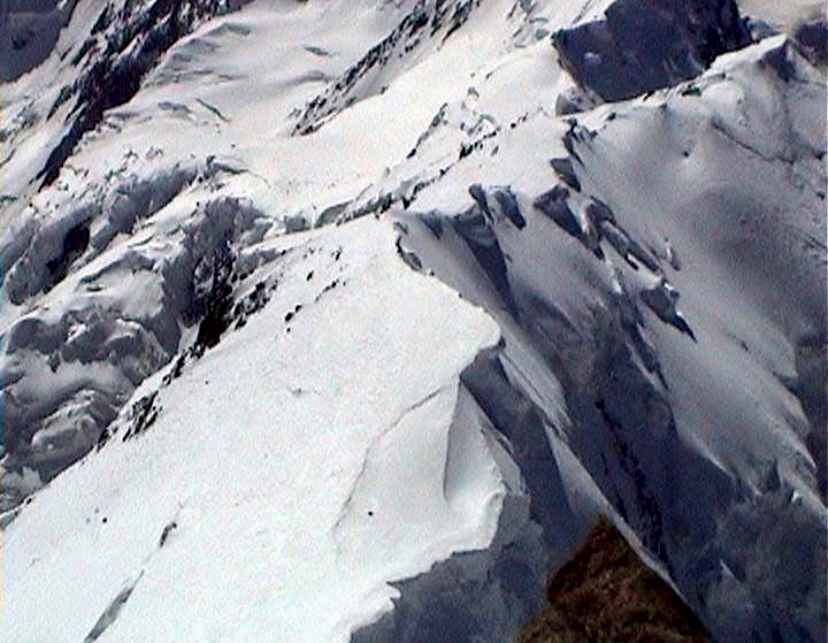
The three-to-four kilometer-long Pobeda ridge, leading from 6,918m Vazha Pshavela Peak to the main summit. View from the summit. Photo: Anna Piunova, Mountain.ru/Facebook
An Italian dies during rescue attempt
The rescue efforts have already claimed one life. Italian climber Luca Sinigaglia died on August 16 during an early attempt to save Nagovitsyna.
On August 12–13, Sinigaglia and a German climber reached Nagovitsyna and gave her a sleeping bag, a stove, a little food, and a gas cylinder, which have been critical to her survival. Exhausted and caught in zero-visibility with gale-force winds, they spent the night on the mountain, and Sinigaglia severely frostbit his hands. Later, they became trapped in a blizzard at 6,800m.
Sinigaglia fell ill, and a doctor consulted over the radio suspected that he was suffering from high-altitude cerebral edema, compounded by hypothermia and frostbite. Sinigaglia died at approximately 6,900m. His body remains in a cave, with harsh weather stalling the recovery of his remains.
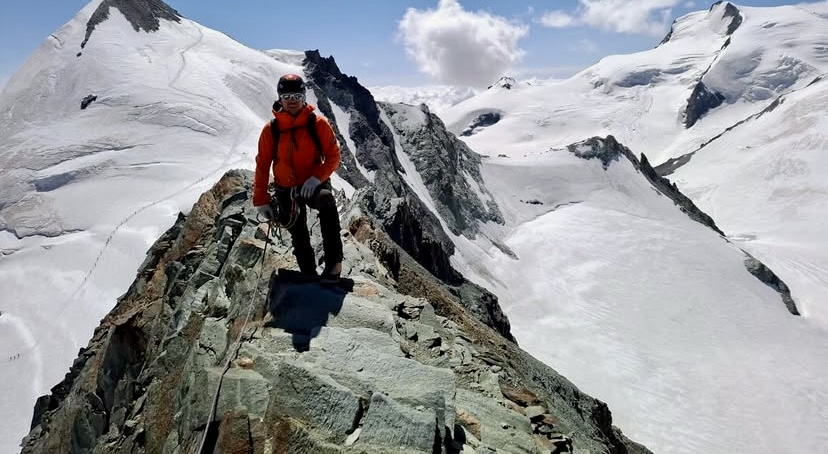
Luca Sinigaglia tried to rescue Natalia Nagovitsyna but perished. Photo: Luca Sinigaglia/Instagram
Two missing Iranian climbers
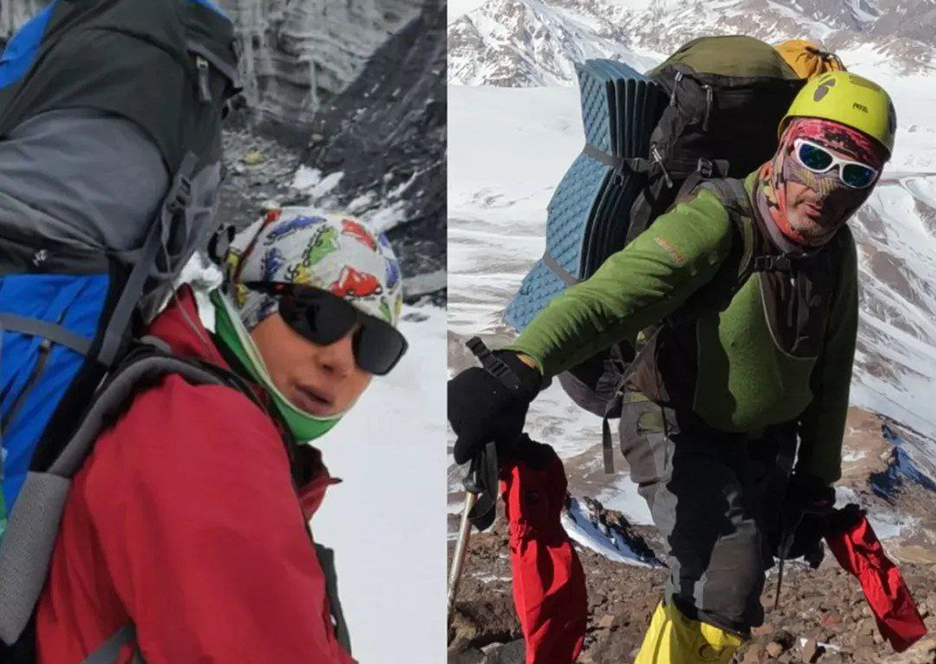
The two missing Iranians, Maryam Pilehvari and Hassan Aghalou. Photo: X
Posts on X dated August 18–19, as well as a comment by one of our readers (Ali Sedghi), report that two Iranians, Maryam Pilehvari and Hassan Aghalou, went missing on Pobeda after attempting to summit around August 12. According to these posts, Mahmoud Allahyari, president of the Central Province Mountaineering Board, stated that Pilehvari, a prominent Iranian climber with a notable record of high-altitude ascents, and Aghalou, a Tehran-based climber, disappeared during a storm on Pobeda Peak. There is “almost no hope” of the pair’s survival.
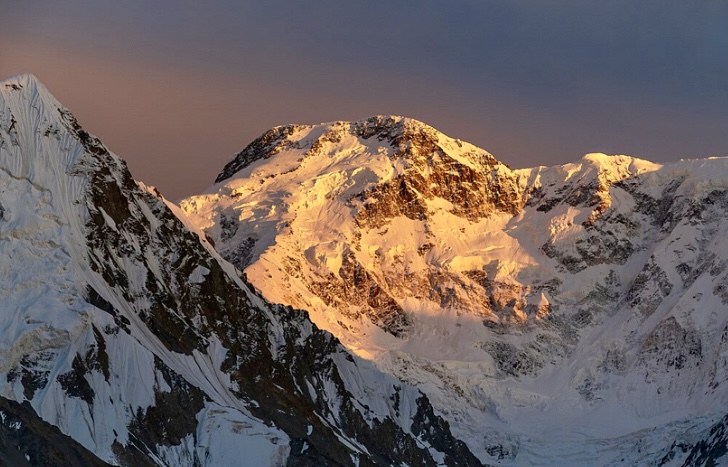
Pobeda is one of the deadliest 7,000m peaks in the world. Photo: Wikimedia
